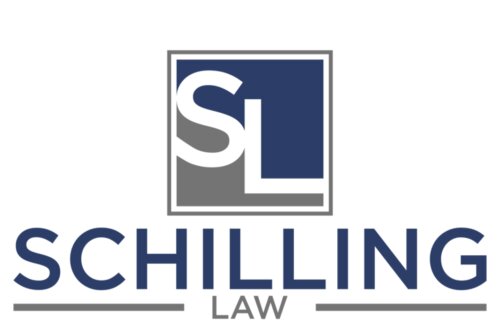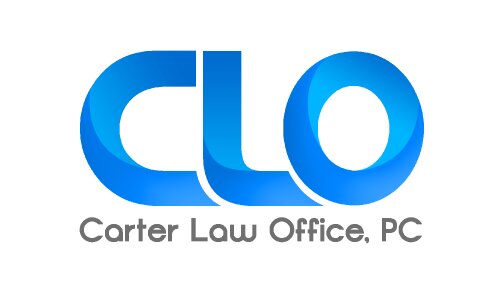Best Real Estate Due Diligence Lawyers in Kansas
Share your needs with us, get contacted by law firms.
Free. Takes 2 min.
Free Guide to Hiring a Real Estate Lawyer
Or refine your search by selecting a city:
List of the best lawyers in Kansas, United States
United States Real Estate Due Diligence Legal Questions answered by Lawyers
Browse our 1 legal question about Real Estate Due Diligence in United States and read the lawyer answers, or ask your own questions for free.
- What is owner of condo units obligation as far as damage to the condo below their unit.
- The unit above my condo is managed by a Property Management company, and it was rented. During the time it was rented, there were water leaks that damaged my ceilings, and the Management Company. refuses to fix the ceiling so that it matches the rest of the ceiling. Even though... Read more →
-
Lawyer answer by Horus Legal Sulotion
Thank you for sharing the details of your situation. Based on the circumstances you described, you may have grounds to escalate the matter legally. You can file a case to request the appointment of a government engineer from Dubai Municipality...
Read full answer
About Real Estate Due Diligence Law in Kansas, United States
Real estate due diligence in Kansas refers to the investigation and evaluation of a property before finalizing a purchase, lease, or investment. This process allows buyers and investors to identify any potential risks, obligations, or legal issues associated with the property. Due diligence examines aspects such as the title history, zoning compliance, environmental conditions, encumbrances, property taxes, and structural integrity. In Kansas, this process is crucial to protect buyers and help ensure that transactions are legally sound and financially viable.
Why You May Need a Lawyer
Engaging a lawyer for real estate due diligence can bring significant benefits, especially in complex transactions. Here are common situations where legal help may be needed:
- Reviewing or negotiating purchase and sale agreements
- Conducting title searches and resolving title defects
- Interpreting local zoning and land use regulations
- Reviewing homeowners association rules and restrictions
- Identifying environmental risks, such as contamination or hazardous materials
- Resolving disputes over boundary lines or easements
- Managing issues involving foreclosure or distressed properties
- Ensuring compliance with Kansas-specific disclosure requirements
A lawyer can uncover hidden liabilities, coordinate with various parties including lenders and inspectors, and help ensure that all documentation complies with state and local laws.
Local Laws Overview
Kansas has several laws and regulations that directly affect real estate due diligence:
- Disclosure Requirements - Kansas is considered a “buyer beware” or “caveat emptor” state, meaning sellers are generally not obligated to disclose all known defects unless directly asked by the buyer or unless the defect is hazardous. However, federal law may impose additional disclosure requirements, especially for lead-based paint in older homes.
- Title and Ownership - Title searches are essential in Kansas due to potential issues like liens, easements, covenants, or unpaid taxes. Kansas law provides processes for quiet title actions when ownership is disputed.
- Zoning and Land Use - Cities and counties in Kansas implement zoning ordinances that regulate property use, development, and modifications, making it important to verify compliance before purchase.
- Tax Considerations - Kansas levies property taxes and may assess unpaid taxes on a property. Buyers are advised to verify tax status and inquire about any potential back taxes or assessments.
- Environmental Issues - If a property has a history of industrial, agricultural, or commercial use, Kansas law may require environmental assessments or remediation for hazardous substances before sale or redevelopment.
- Contract Law - The Kansas Statute of Frauds requires real estate contracts to be in writing to be enforceable.
Local ordinances and codes can vary widely, so it is important to review not only statewide statutes but also city or county regulations that may impact the transaction.
Frequently Asked Questions
What is included in real estate due diligence in Kansas?
Typical due diligence in Kansas includes a title search, review of zoning and land use, examination of surveys and boundary lines, property inspections, review of covenants or restrictions, assessment of property taxes, and checking for environmental issues or legal encumbrances.
Do sellers have to disclose property defects in Kansas?
Generally, Kansas is a caveat emptor state, which means sellers are not required to proactively disclose every defect. However, they must truthfully answer direct questions from buyers and must disclose material defects that could be hazardous or are covered under federal law.
How do I check for liens or unpaid taxes on a property?
You can perform a title search through the county register of deeds office or work with a title company. Property tax status can be checked with the county treasurer’s office where the property is located.
Are home inspections mandatory during due diligence?
Home inspections are not legally required in Kansas but are highly recommended. Inspections can help buyers identify potential repair costs or hidden issues before closing the deal.
Can I back out of a real estate transaction during the due diligence period?
Whether you can terminate a contract depends on the terms set in the purchase agreement. Many contracts include contingencies that allow buyers to withdraw if certain conditions are not met during due diligence.
What environmental issues should I be concerned about?
Possible concerns include contaminated soil, underground storage tanks, asbestos, radon, and lead-based paint. Environmental assessments can help determine if remediation is needed.
What is a quiet title action?
A quiet title action is a legal proceeding used to resolve disputes about property ownership or clear up title defects so that the current owner can have clear, marketable title.
How are boundary disputes handled in Kansas?
Boundary disputes may require a survey and sometimes legal action, such as a quiet title lawsuit, to resolve conflicting claims over property lines or ownership.
Is title insurance necessary in Kansas?
While not required by law, title insurance can protect buyers and lenders against losses due to defects, liens, or disputes involving the title that arise after the purchase is completed.
What happens if I find issues after closing?
If problems arise after closing, remedies depend on the contract, the nature of the issues, and whether any fraud or misrepresentation occurred. Legal counsel can review options, which may include negotiation or litigation.
Additional Resources
The following resources can assist with real estate due diligence in Kansas:
- Kansas Bar Association - provides referrals and legal information.
- Kansas Real Estate Commission - regulates licensed real estate professionals and provides consumer guidance.
- County Register of Deeds Offices - for title records and property documents.
- Kansas Department of Health and Environment - for environmental records and assessments.
- City and County Planning Departments - for local zoning codes and land use regulations.
- Title companies and local real estate attorneys - for specialized legal and title services.
Next Steps
If you are considering a real estate transaction in Kansas, here are some helpful next steps:
- Review any contracts or offers carefully before signing.
- Hire a local real estate attorney to guide you through the due diligence process.
- Order a title search and consider purchasing title insurance.
- Schedule professional inspections and surveys as needed.
- Consult city or county offices for property records, zoning information, and possible restrictions.
- Address any issues or questions early to avoid surprises and protect your investment.
By taking these steps and seeking professional legal advice, you can minimize risks and navigate Kansas real estate due diligence with confidence.
Lawzana helps you find the best lawyers and law firms in Kansas through a curated and pre-screened list of qualified legal professionals. Our platform offers rankings and detailed profiles of attorneys and law firms, allowing you to compare based on practice areas, including Real Estate Due Diligence, experience, and client feedback.
Each profile includes a description of the firm's areas of practice, client reviews, team members and partners, year of establishment, spoken languages, office locations, contact information, social media presence, and any published articles or resources. Most firms on our platform speak English and are experienced in both local and international legal matters.
Get a quote from top-rated law firms in Kansas, United States — quickly, securely, and without unnecessary hassle.
Disclaimer:
The information provided on this page is for general informational purposes only and does not constitute legal advice. While we strive to ensure the accuracy and relevance of the content, legal information may change over time, and interpretations of the law can vary. You should always consult with a qualified legal professional for advice specific to your situation.
We disclaim all liability for actions taken or not taken based on the content of this page. If you believe any information is incorrect or outdated, please contact us, and we will review and update it where appropriate.
Browse real estate due diligence law firms by city in Kansas
Refine your search by selecting a city.









